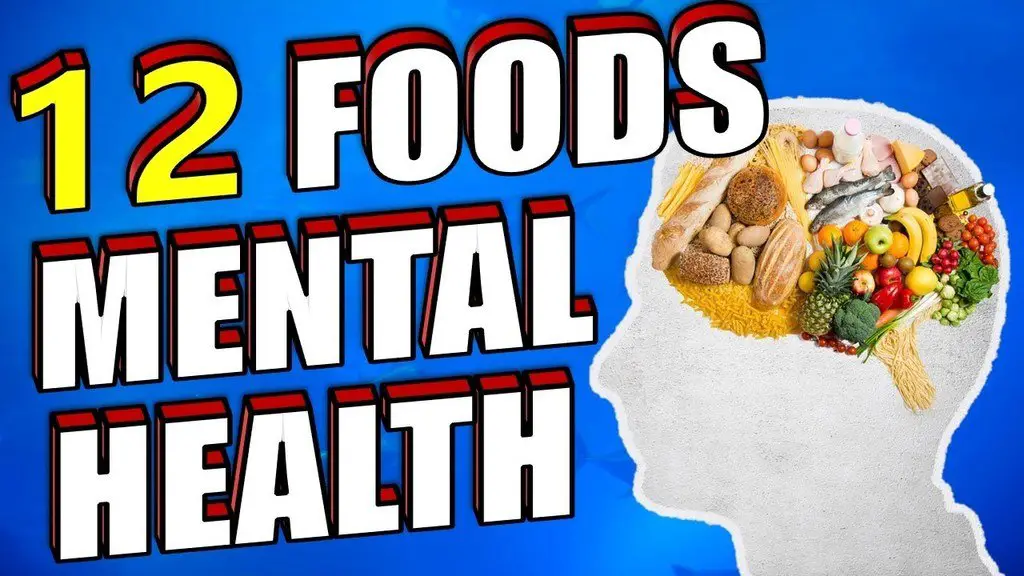It wasn’t until the last decade or so that mental health awareness campaigns enlightened people about recognizing, understanding, and treating mental illnesses. Fortunately, we’re now at a point where mental health is considered just as important as physical wellbeing. While there’s still lots of room for learning, we have a basic awareness of mental illnesses, and how to prevent them.
Generally, mental health involves our psychological, social, and emotional well-being. It plays a crucial role in all areas of life. It impacts our thoughts, feelings, actions, behaviours, and habits. It also governs how we approach stress, interact with other people, and make decisions. No matter if you’re young or old, taking care of your mental health is essential in all stages of life.
Running into some form of mental health problems occasionally is normal, and probably inevitable. Just like you fall physically sick sometimes, your mental health can sometimes take a tumble. When that happens, your mood, thinking, and behaviours change.
The direct cause of mental illnesses isn’t usually clear. However, some general factors that play an important role in your mental health include biological factors, upbringing, or external catalysts that may present anxiety, stress, or trigger traumatic memories.
Doctors and scientists are aware of a large variety of mental health problems, including depression, anxiety, bipolar disorder, anorexia, BPD, schizophrenia, and body dysmorphia, and so on.
It’s tough to find out that you or one of your loved ones has been diagnosed with a mental illness. Some warning signs include sleeping poorly, low energy, low mood, distancing or isolating oneself from others, frequent and severe mood swings, and higher stress levels.
Mental health issues often require formal medical treatment, but many lifestyle changes are recommended by experts to generally help you boost your mental health. In this article, we’ll discuss the dietary side of a lifestyle that promotes optimal mental health.
Best Foods to Start Adding to Your Diet
1. Yogurt
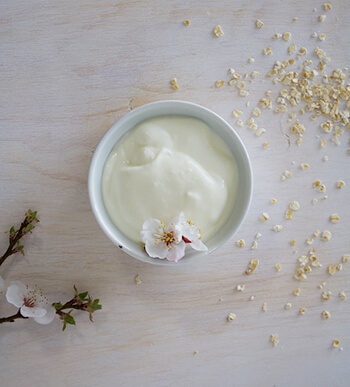
The digestive benefits of probiotics are widely known, and they’re found abundantly in unsweetened, natural yoghurts. Experts think that probiotics can also positively affect your mental health. They help lower levels of anxiety, depression, and stress. If you haven’t been eating much yoghurt in your daily diet, you should consider changing that to transition towards a more mentally healthy diet. It’s best to go for low-sugar and low-fat yoghurt options.
2. Mushrooms
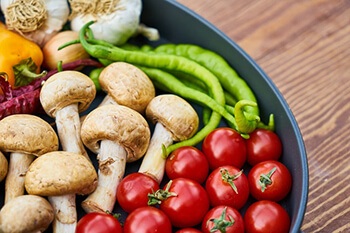
Mental health can largely benefit from mushrooms for two reasons. First, mushrooms are also somewhat a probiotic, stimulating the growth of healthy gut bacteria, which regulates healthy gut functioning. Nerve cells in the gut produce most of the body’s serotonin, which is a mood-stabilizing hormone that helps keep you happier. The better you treat your gut, the happier you’ll be. Second, the chemical properties of mushrooms help prevent insulin’s over-production, lowering your blood sugar levels and ultimately stabilizing your mood.
Simply add mushrooms to your vegetable and meat dishes, such as cooked breakfasts or curries. If you’re not a fan of their distinct texture, simply chop them up into smaller bites!
3. Tomatoes
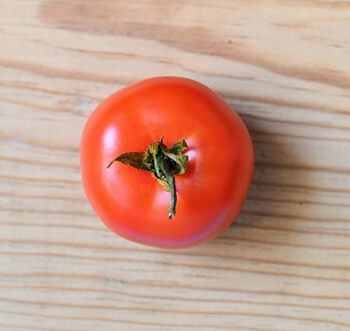
As an excellent folic acid and alpha-lipoic acid source, tomatoes are one of the best foods to naturally counter depression. Both of these acids are particularly good against certain mental illnesses. Research has found a link between depression and folate deficiency. The same study found that about one-third of patients diagnosed with depression were folate deficient.
Folic acid is thought to prevent an excess of homocysteine, a compound that inhibits the production of dopamine and serotonin. Tomatoes’ alpha-lipoic acid helps the body turn glucose into energy, stabilizing mood naturally. To use tomatoes regularly, you can mix them into your pasta bakes, salads, or curries.
4. Beans
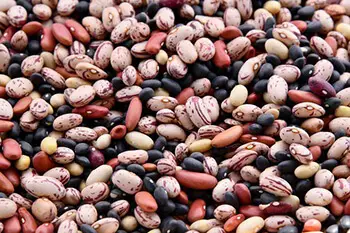
Considering the exceptional range of nutritional value of beans, it’s fair to say they’re extremely underrated. Not only are they the best weight-loss and anti-diabetes foods, but beans can also make your mood much better. The body digests beans slowly, preventing sugar spikes and stabilizing blood sugar levels. You can replace some of your meat intake with beans to improve your mental health without having to miss out on protein.
You can have beans regularly in the form of salads, curries, and oven-baked dishes. The more you can diversify the variety of beans you eat, the better.
5. Bananas
Bananas are famous as one of the most nutrition-rich fruits to eat daily. According to studies, they’re also great for your mental health. Bananas can help enhance your mood almost immediately, thanks to their effect on tryptophan—an amino acid that stimulates serotonin production. The more of this neurotransmitter your body produces, the happier you’ll naturally be.
Tryptophan also helps regulate your food intake and sleeping pattern, which are both critical for maintaining positive mental health. Instead of grabbing unhealthy products as a snack, keep bananas handy! If, like many people, you’re not fond of the texture, simply start your mornings with a banana smoothie.

6. Lentils
Looking at their impact on mental health, lentils have similar benefits to beans. Regularly eating lentils helps boost your mood naturally, as they’re rich in B vitamin folate, which the body needs for serotonin production.
Serotonin is an essential neurotransmitter, also called ‘the happy hormone’ – so the more of it your body produces, the better it is for your mental health. Additionally, just like beans, lentils prevent sudden blood sugar level spikes as they’re quite low on the glycaemic index. As we’ve discussed, regulation of blood sugar levels is an essential part of ensuring good mental health. Not only that, but it also helps you maintain consistent energy levels throughout the day.
You can add lentils to your diet in the form of curry dishes, salads, or oven-baked recipes.
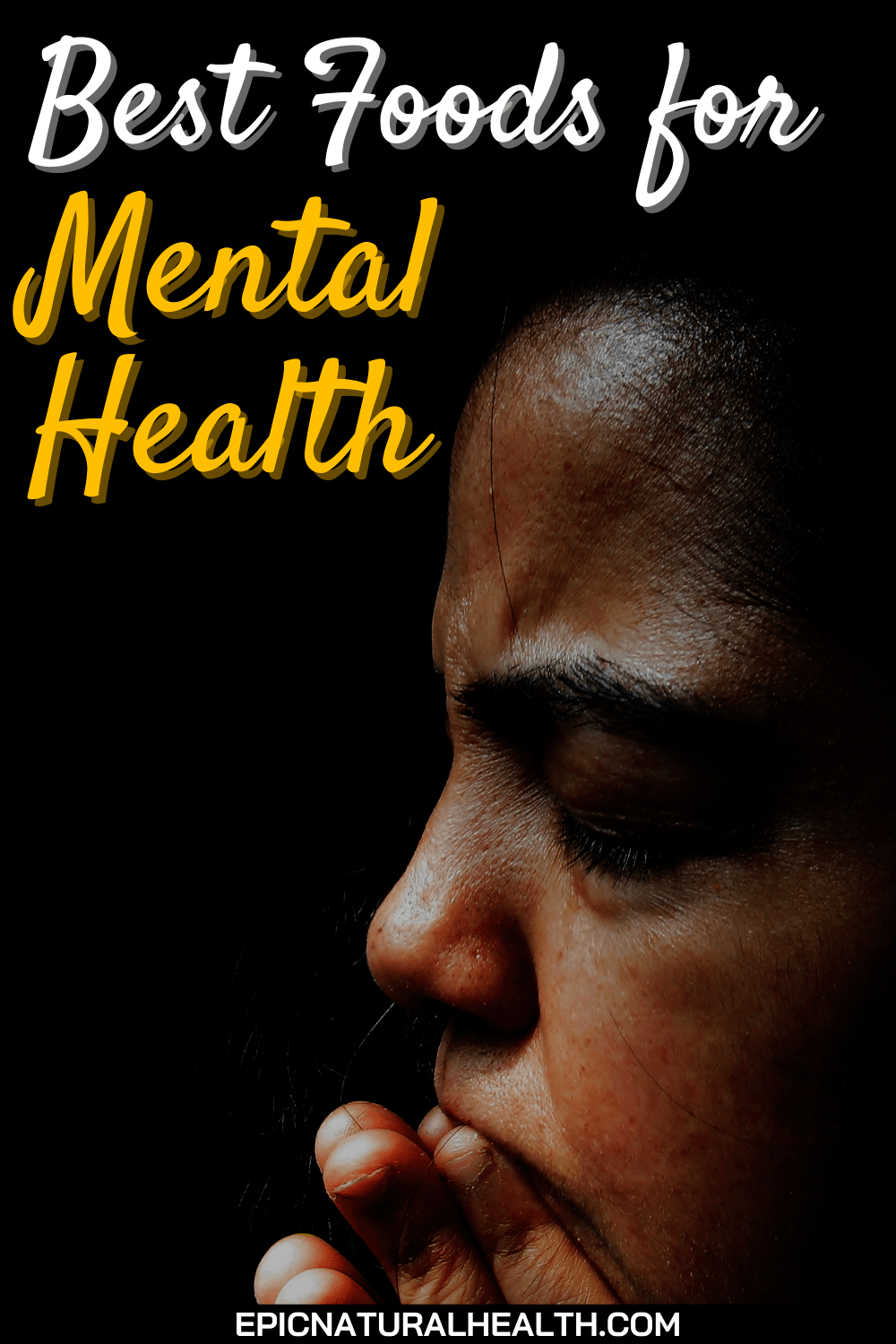
7. Seeds
There’s currently a hype amongst the health-conscious for a variety of seeds and their health benefits. The nutritional value that some of these seeds pack certainly justifies that hype. Chia seeds, flaxseeds, and hemp seeds are especially good for enhancing your mood. As they’re loaded with omega 3 fatty acids, they help counter inflammation and diseases which can potentially harm your mental health.
Plus, these seeds have shown to increase the body’s ability to absorb nutrients found in vegetables. The best thing you can do is to pair your vegetable-based meals with different types of seeds to get the best out of them.
8. Lean protein

While lean protein isn’t a specific type of food to focus on, all sources of lean proteins will have a positive effect on your mental health. Whether it be beef, chicken, or turkey, they’re all rich in essential compounds that are useful for neurotransmitter production. Since the production of neurotransmitters is integral to good mental health, so are the foods that promote it.
You can boost your lean protein intake by adding lean protein sources into your daily dishes, whether by baking them in the oven, grilling them, or enjoying them with vegetables for a large, satiating meal.
- Hardcover Book
- Naidoo MD, Uma (Author)
- English (Publication Language)
- 384 Pages - 08/04/2020 (Publication Date) - Little, Brown Spark (Publisher)
- Garib, Glauco Egydio (Author)
- English (Publication Language)
- 121 Pages - 12/23/2024 (Publication Date) - G. E. GARIB (Publisher)
- Hardcover Book
- Korn PhD, Leslie (Author)
- English (Publication Language)
- 464 Pages - 01/11/2016 (Publication Date) - W. W. Norton & Company (Publisher)
- Elkins, Aydin (Author)
- English (Publication Language)
- 110 Pages - 09/19/2022 (Publication Date) - Independently published (Publisher)
9. Apples
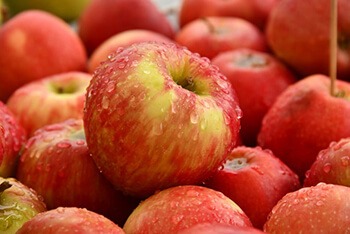
You’ve heard it since you were a kid—an apple a day keeps the doctor away.
Since apples have a high fructose content, some health experts may not be too excited about encouraging people to eat apples regularly. However, the wide spectrum of minerals and vitamins they’re loaded with is certainly something to boast about, especially since they’re also essential for the production of neurotransmitters.
Apples are a fantastic antioxidant source, which is crucial for countering inflammation. Thanks to this, apples can help prevent mood swings and low mood. While an apple is a tasty snack to have on its own, having it daily might require some creativity along the way. You could top your porridge with apple slices, have it in a Russian salad, or, as a treat, in the form of a delicious apple pie.
10. Eggs
Eggs are the superstars in the world of health and fitness as they’re one of the most nutrient-dense foods in the world! They’re filled with protein, healthy fats, and essential minerals and vitamins. They even contain various compounds that have proven to positively affect brain cell health and function.
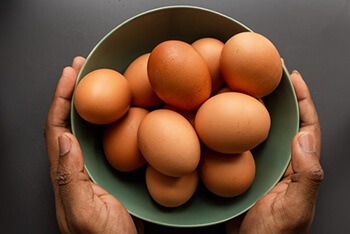
Eggs are commonly recommended as an addition to a diet for boosting mental health. However, how you cook your eggs matters the most. Make sure you poach or boil your eggs for best results, as unhealthy oils can work against your mental health.
11. Green tea

Green tea might not be your preferred afternoon beverage, but if you’re looking to work on your mental health, it deserves a spot in your daily diet. It’s naturally rich in powerful antioxidants, and studies have shown that it can improve almost all human health aspects. The list of green tea’s benefits is endless, and includes improved metabolic health, weight loss, and preventing cardiovascular diseases.
Unsurprisingly, green tea plays a vital role in improving your mental health as well. It manages the decline in cognitive ability that comes with ageing, and decreases anxiety and depression risks. For best results, try to regularly start your day with a cup of green tea.
12. Fermented foods

If you’ve never heard of sauerkraut, kimchi, or kefir before, now’s the time to look into them. These three foods are made through a process of fermentation that enriches them with healthy probiotics along the way. Probiotics, as you know by now, are great for gut health. A healthier gut means a happier you.
You can add fermented foods to your breakfast, such as scrambled eggs or omelettes. To have them later on in the day, you can add them into your stir-fries, fried rice, or top them on your pizza or grilled cheese. With fermented foods, you can get as inventive as you like.
What not to eat
Just like some foods promote good mental health, some foods work against it. To make sure your mental health improves, you’ll also have to avoid eating certain things. For instance, drinks filled with sugar, fruit juices, and fizzy sodas can cause inflammation, harming your microbiota health. Diets involving a large number of sugary drinks can take a toll on your mental health.
Moreover, cooking your meals in vegetable oils isn’t the best idea either. They’re cheap, but highly processed and loaded with omega 6 fatty acids. Consuming too much of this type of fatty acids can lead to increased inflammation, ultimately worsening your mental health. According to some studies, increased vegetable oil intake has been linked to higher suicide risk.
Processed meats also deserve a mention here as a major food group you should stay away from, due to their negative impact on the brain. Refined carbs should also be avoided as they have no nutritional value and cause inflammation. Lastly, alcohol—as it’s linked to an increased risk of anxiety and depression, according to many studies.

Conclusion
Even to this day, we don’t know too much about mental health and how we can preserve and improve it. However, we do know that we are what we eat. There’s a direct association between our diet and how our brain operates. Following a healthier diet plan and leading an active lifestyle can make a huge positive impact on our mental health. It’s also crucial to get sufficient sleep and find time for relaxation during the day.
Making the right lifestyle changes is necessary to generally nurture your mental health. However, if you’re struggling with anxiety or depression, the best thing you can do is get help, whether by talking to your loved ones or booking an appointment with your doctor to privately discuss what you’re experiencing. There’s always a way to share your burden and find relief. Remember, mental health issues affect all of us at certain stages of our lives, and suffering in silence is never the right course of action.

